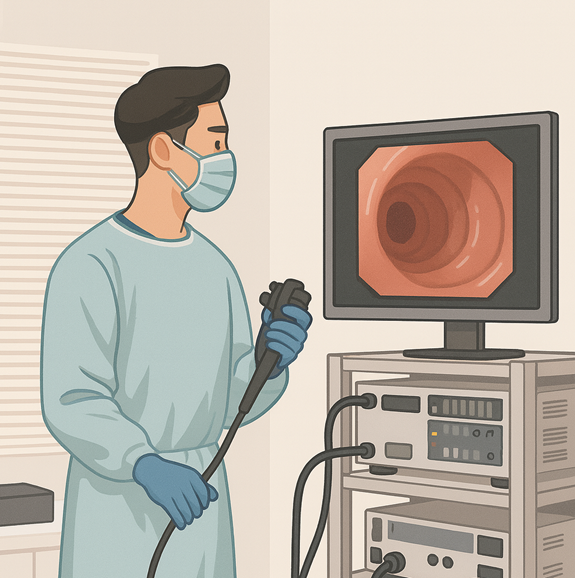Diagnosis of Ulcerative Colitis

Diagnosing ulcerative colitis involves a comprehensive evaluation combining medical history, physical examination, and various tests. These may include blood tests, stool studies, abdominal-pelvic computed tomography (CT), endoscopy, colonoscopy with biopsies, and other imaging studies. Through these tests, we can detect signs of inflammation, anemia, low protein levels, and rule out infections. These methods help identify active inflammation and assess the extent of disease throughout the digestive tract.
Because symptoms can be nonspecific, confirming a diagnosis may take time. In some cases, it can be challenging to distinguish ulcerative colitis from Crohn’s disease, another form of inflammatory bowel disease, a condition referred to as indeterminate colitis.